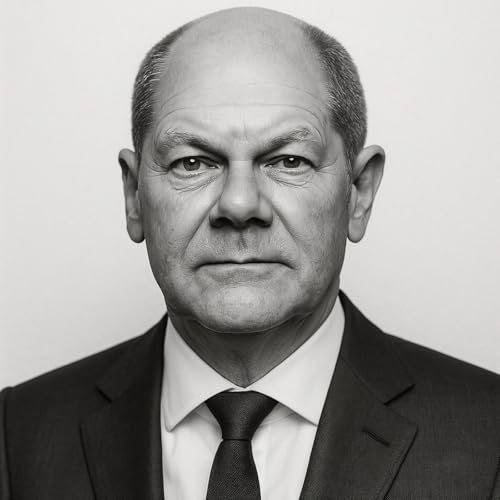
Scholz's Legacy Debated 1 Year Later | Biography Flash
Échec de l'ajout au panier.
Veuillez réessayer plus tard
Échec de l'ajout à la liste d'envies.
Veuillez réessayer plus tard
Échec de la suppression de la liste d’envies.
Veuillez réessayer plus tard
Échec du suivi du balado
Ne plus suivre le balado a échoué
-
Narrateur(s):
-
Auteur(s):
À propos de cet audio
Olaf Scholz’s biography gained another dramatic turn this week as German politics wrestled with the lasting impact of his chancellorship a year after it ended. Today’s Times of India reports that Germany’s Bundestag has voted to get rid of a fast-track citizenship law—one of Scholz’s signature migration reforms. This move, which raises the residency requirement for citizenship from three years back to five and ends a pathway heavily favored for highly skilled, well-integrated migrants, marks a symbolic rollback of Scholz’s open, modern vision for German society. The law itself, brought in by Scholz’s SPD-led coalition in 2024, was praised at the time for helping Germany compete for top global talent and to modernize the nation’s demographics. Its reversal is now being framed by both supporters and critics as evidence of the souring mood over migration and the growing influence of the CDU and far-right AfD. The Times of India and Daily Sabah both note how the end of Scholz’s policy is seen by many as a turning point that may affect Germany’s ability to attract highly skilled workers in the years ahead.
Meanwhile, in defense and European strategy, The Aviationist reveals that a decision set in motion by Scholz last year has just borne fruit: the Bundestag has approved the €3.75 billion procurement of a new tranche of Eurofighter jets, part of Scholz’s long-term push to remake Germany’s armed forces and fulfill NATO obligations. The deal will help Germany shift away from older Tornado jets and adopt advanced electronic warfare capabilities, with these jets scheduled for delivery from 2031 to 2034. This move is still seen as part of Scholz’s Zeitenwende legacy—a pivot to stronger security and defense investments, which continues to shape Germany’s military industry and Europe’s strategic posture, even after Scholz left office.
On the diplomatic stage, the lingering impact of Scholz’s policies was sharply debated. Berliner Zeitung ran a piece noting that Germany has lost global influence at major Middle East summits, pointing to Scholz’s staunch pro-Israel stance and criticizing how Berlin’s reputation as an impartial broker was lost under his leadership. The piece argues that the policies of Scholz and his successor Friedrich Merz have pushed Germany to the sidelines internationally, especially in the eyes of the Global South.
On the public appearance front, there have been no recent reports of Scholz himself making major speeches or social media appearances in the past 24 hours. Instead, much of the conversation around him has focused on the legacy of his time as chancellor—especially as it gets dismantled or defended in the halls of parliament and across international summits.
For now, Scholz continues to be referenced in discussions of Germany’s position in Europe and on the world stage. Publications like Diplomatic Watch and Jacques Delors Centre reflect on his coalition-building skills and his enduring influence on Germany’s approach to military, migration, and European integration strategy. However, the tone is increasingly one of mixed legacy: praise for his vision tempered by criticism of his government’s handling of migration challenges and global diplomacy.
Thanks for listening to Olaf Scholz Biography Flash. Subscribe to never miss an update on Olaf Scholz and search the term Biography Flash for more great biographies.
Get the best deals https://amzn.to/4mMClBv
This content was created in partnership and with the help of Artificial Intelligence AI
Pas encore de commentaire


